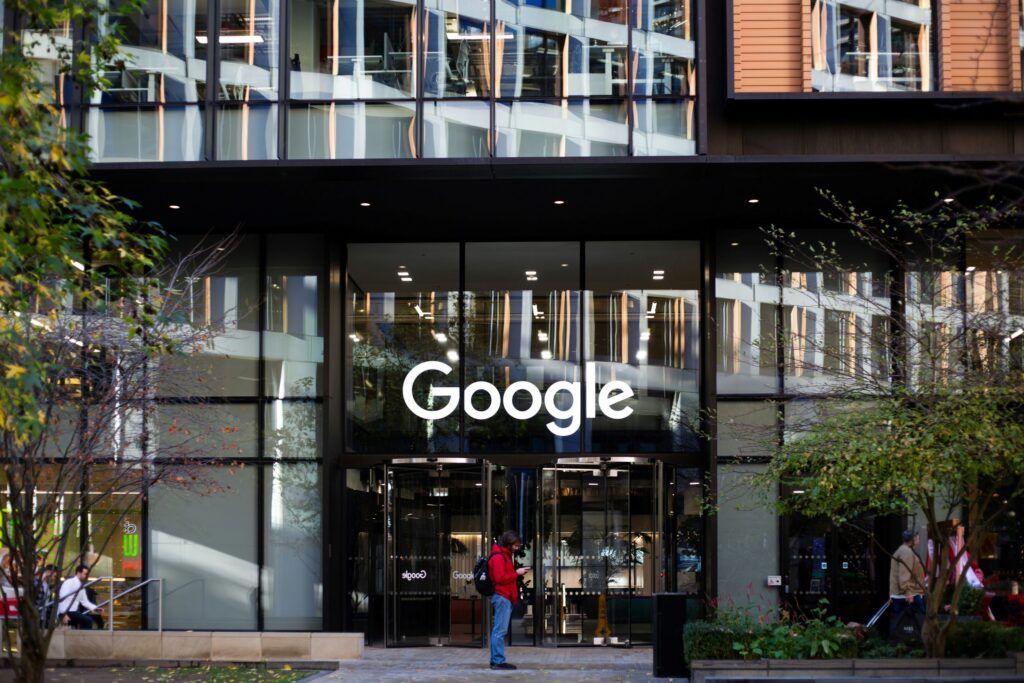PROXY MEMORANDUM
To: Shareholders of Alphabet Inc. (the “Company” or “Alphabet”)
From: The Anti-Defamation League (“ADL”) & JLens (together, “we”)
Date: May 7, 2025
Re: The case to vote AGAINST Proposal 9 (“Report on the Due Diligence Process to Assess Human Rights Risks in CAHRA”) on Alphabet’s 2025 Proxy Statement
We Urge You to Vote AGAINST Proposal 9 on Alphabet’s 2025 Proxy Statement
Proposal 9 calls on Alphabet to commission an independent third-party report “on the due diligence process [Alphabet] uses to determine whether customers’ use of products and services for surveillance, censorship, and/or military purposes contributes to human rights harms in conflict-affected and high-risk areas (CAHRA).”
While framed as a call for neutral oversight, we believe the measure co-opts the CAHRA framework to advance a narrow political agenda: it singles out Israel, mirrors the Boycott, Divestment & Sanctions (“BDS”) tactics, ignores Israel’s legitimate security needs, and leans on biased sources. In our view, Proposal 9 is politically motivated, designed to inject partisan politics into Alphabet’s due diligence program, jeopardize lawful partnerships aligned with U.S. policy, and expose the Company to reputational, operational, and workplace risks without meaningfully improving human-rights protections.
A Veiled BDS Campaign
BDS activists frequently use shareholder mechanisms to pressure companies into cutting economic ties with Israel. This proposal follows that script by:
- Framing standard technology contracts as unique ethical risks, specifically when Israel is the end user.
- Implying that providing AI or cloud services to the Israeli government is fundamentally suspect, even though these same technologies are used by other democracies without attracting similar scrutiny.
- Using “human rights” language to question Israel’s legitimate defense capabilities, rather than focusing on actual misuse.
This approach mirrors the BDS movement’s core strategy: undermine Israel’s security partnerships by casting lawful, widely employed technologies as exceptional moral threats [1] [2].
What distinguishes this proposal in our view is not a principled concern for human rights, but the selective, politicized framing that treats Israel as uniquely problematic.
Project Nimbus: Misinformation and Omission
Project Nimbus is a broad cloud-based computing initiative supporting various Israeli ministries, including taxation, healthcare, education, and administrative services [3]. Despite this, the proposal clearly:
- Paints Project Nimbus as primarily a military venture, glossing over its role in delivering essential public services, and omitting its extensive civilian applications.
- Lacks concrete evidence of “misuse,” simply concluding that military use of advanced tech in Israel is automatically unethical.
- Holds Israel to a different standard than other nations, where similar technologies are used without comparable scrutiny or condemnation.
By suggesting any potential military application is wrongful, the measure ignores Israel’s legitimate need to protect its citizens from persistent threats. It implicitly treats Israel’s defense activities as uniquely suspect, while downplaying or overlooking comparable uses of technology by other nations.
Ignoring Israel’s Security Context
Alphabet’s technology, including advanced AI and cloud-based services, plays a critical role in protecting Israeli civilians from continuing violence [4]. The October 7, 2023 attacks on Israel, which claimed over 1,200 lives and took hundreds of hostages, underscore why modern defense capabilities are vital [5]. Despite this reality, the proposal:
- Portrays Israel’s adoption of AI for defense as a unique ethical risk.
- Overlooks the persistent terrorist threat facing Israeli civilians and the corresponding need for robust defensive measures.
- Ignores that Israel’s defense partnerships, including Project Nimbus, comply with U.S. and international law.
In our view, the proposal downplays terrorism by omitting any mention of the October 7, 2023 massacre or the broader context of persistent rocket attacks, suicide bombings, and armed incursions that target Israeli civilians. By treating Israel’s defensive measures as inherently suspect, the proposal distorts the legitimate security needs of a democratic ally responding to existential threats.
Disproportionate Focus on Israel
We believe Proposal 9 reflects a core tactic of the BDS movement by disproportionately scrutinizing Israel’s adoption of technology for defense, while downplaying comparable uses by other nations. Alphabet’s products power defense, healthcare, transportation, and tax systems worldwide, yet Israel’s projects are singled out for censure. The proposal exemplifies this in the following ways:
- Of the five CAHRA examples cited, the section on Israel is the longest and most detailed.
- Israel is the only country where internal employee dissent is cited to suggest reputational risk, amplifying controversy without substantiated evidence.
- References to Israeli military operations are presented without any context.
- There is no mention of terrorism, Israel’s democratic legal system, or the extensive civilian uses of Project Nimbus, despite these being public and material facts.
The proposal brands Project Nimbus as an “ethical, legal, and reputational” risk, but ignores comparable cloud-and-AI programs in other democracies. It portrays Israel’s use of facial recognition and sentiment analysis as uniquely condemnable, even though the U.K., France, Germany, Australia, Canada, and many others deploy the same tools for legitimate public-safety purposes [6]. No such criticism is leveled at those nations, or at authoritarian regimes with far worse human-rights records. It is clear to us that this selective omission exposes a political bias, not a principled, universal standard.
Relies on Biased and Unreliable Sources
We believe Proposal 9 relies heavily on sources that lack neutrality and reflect a broader political campaign against Israel. Much of the proposal’s supporting arguments draw from a web of interconnected organizations and media outlets known for promoting the BDS movement and the delegitimization of Israel.
- The Intercept – Publishes highly critical pieces on Israeli defense projects, quoting No Tech for Apartheid and HRW without presenting legal or security context [7].
- Anadolu Agency – Turkey’s state-run outlet; amplifies BDS rhetoric and repeats claims that Project Nimbus “enables apartheid and genocide” [8].
- Human Rights Watch – Frequently labels Israel an apartheid state; its founder, Robert Bernstein, publicly rebuked the group for disproportionate focus on Israel [9].
- No Tech for Apartheid – Activist campaign demanding Google and Amazon cut all ties with Israel and calling the state “illegitimate” and guilty of “ethnic cleansing” [10].
- American Friends Service Committee “Investigate” Initiative – A BDS-aligned project that brands Israel an apartheid regime while omitting terrorism and regional-security context. While AFSC is not directly cited in the proposal, its framing and conclusions have clearly shaped the broader narrative that Proposal 9 seeks to legitimize [4] [11].
By relying on sources widely criticized for bias, Proposal 9 erodes the very foundation of its case. When the supporting evidence comes from outlets and campaigns with explicit anti-Israel agendas, the proposal cannot offer a neutral, independently verified assessment of human-rights risk; it simply repackages politicized narratives that mirror the BDS movement, an agenda the ADL and others call antisemitic for denying Jewish self-determination [12].
How This Proposal Could Harm Alphabet and Risk Shareholder Value
We believe that approving a human rights due diligence report that fixates on Israel:
- Invites Activist Pressure: A narrowly-scoped report could open the door to pressure campaigns seeking to limit or terminate Alphabet’s lawful agreements with Israel, encouraging further misuse of shareholder processes to advance political agendas.
- Undercuts Business Certainty: Continual efforts to challenge standard technology contracts based on political motives, not objective risk assessments, can disrupt long-term planning, especially when they’re politicized around Israel.
- Undermines Confidence in Oversight Mechanisms: A truly fair due diligence process ought to consider the complexities of each region. Singling out Israel not only distorts the Company’s risk-assessment priorities but also signals to other customers that Alphabet’s compliance standards are subject to politicized reinterpretation, undermining stakeholder trust across global markets.
- Fuels Division and Harassment in the Workplace: Proposals like this one contribute to divisive and hostile environments within companies. Jewish employees in particular have reported increased harassment and discomfort as a result of this type of rhetoric, eroding a sense of inclusion and trust in the workplace [13].
Conclusion: Vote AGAINST Proposal 9 to Reject a Politicized Agenda
We believe Proposal 9 cloaks a blatantly anti-Israel campaign in human rights language. By labeling Israel’s use of standard cloud computing and AI solutions as a unique moral dilemma, this proposal aims to encourage Alphabet to distance itself from lawful, legitimate partnerships with a key democratic ally.
A vote AGAINST Proposal 9 will protect the Company’s focus on responsibly deploying its technologies around the world, without enabling politically motivated demands that single out Israel and undermine shareholder value.
Rejecting Proposal 9 affirms Alphabet’s commitment to principled, consistent oversight—one grounded in objective risk, not advocacy-driven double standards.
Thank you for your careful consideration.
For more information, please contact Dani Nurick, JLens Director of Advocacy, at dani@jlensnetwork.org.
Endnotes:
- The BDS Movement official website openly calls for ending business ties with Israel. https://www.bdsmovement.net/.
- American Friends Service Committee lists Alphabet/Google as a target in its “Investigate” project advocating divestment from companies linked to Israel. https://investigate.afsc.org/.
- Nico Grant, “Google-Israel Contract Project Nimbus”, New York Times, December 3, 2024, https://www.nytimes.com/2024/12/03/technology/google-israel-contract-project-nimbus.html.
- “Alphabet Inc”, Investigate, February 5, 2025, https://investigate.afsc.org/company/alphabet.
- “Remarks by President Biden on the October 7th Terrorist Attacks and the Resilience of the State of Israel and its People”, The White House, October 18, 2024, https://bidenwhitehouse.archives.gov/briefing-room/speeches-remarks/2023/10/18/remarks-by-president-biden-on-the-october-7th-terrorist-attacks-and-the-resilience-of-the-state-of-israel-and-its-people-tel-aviv-israel/.
- Paul Bischoff, “Facial recognition technology (FRT): Which countries use it?”, Comparitech, https://www.comparitech.com/blog/vpn-privacy/facial-recognition-statistics/.
- Sam Biddle, “Google Photos Helped Israel Identify Palestinians in Gaza”, The Intercept, April 5, 2024, https://theintercept.com/2024/04/05/google-photos-israel-gaza-facial-recognition/
- Rabia Ali, “Project Nimbus Key Asset in Israel’s War on Gaza,” Anadolu Agency, April 24, 2024, https://www.aa.com.tr/en/middle-east/-project-nimbus-key-asset-in-israel-s-war-on-gaza-occupied-palestine-/3195224.
- Robert L. Bernstein, “Rights Watchdog, Lost in the Mideast,” New York Times, October 19, 2009, https://www.nytimes.com/2009/10/20/opinion/20bernstein.html.
- “No Tech for Apartheid”, BDSMovement.net, https://www.bdsmovement.net/no-tech-apartheid (last visited May 6, 2025).
- “American Friends Service Committee (AFSC) – Profile”, NGO Monitor, July 24, 2023, https://www.ngo-monitor.org/ngos/american_friends_service_committee_afsc/.
- “Backgrounder on the Boycott, Divestment, and Sanctions (BDS) Campaign”, Anti-Defamation League, May 24, 2022, https://www.adl.org/resources/backgrounder/boycott-divestment-and-sanctions-campaign-bds.
- “A Summary of Our Latest Research: Antisemitism and Islamophobia in the Workplace”, Pearn Kandola, October 1, 2024, https://pearnkandola.com/insights/a-summary-of-our-latest-research-antisemitism-and-islamophobia-in-the-workplace.
About the Anti-Defamation League
ADL is the leading anti-hate organization in the world. Founded in 1913, its timeless mission is “to stop the defamation of the Jewish people and to secure justice and fair treatment to all.” Today, ADL continues to fight all forms of antisemitism and bias, using innovation and partnerships to drive impact. A global leader in combating antisemitism, countering extremism and battling bigotry wherever and whenever it happens, ADL works to protect democracy and ensure a just and inclusive society for all.
About JLens
JLens’ mission is to empower investors to align their capital with Jewish values and advocate for Jewish communal priorities in the corporate arena. Founded in 2012 to give the Jewish community a strategic presence in this influential arena, JLens promotes Jewish values and interests, including combating antisemitism and Israel delegitimization. More at www.jlensnetwork.org.
THIS IS NOT A PROXY SOLICITATION AND NO PROXY CARDS WILL BE ACCEPTED
Please execute and return your proxy card according to Alphabet’s instructions.




